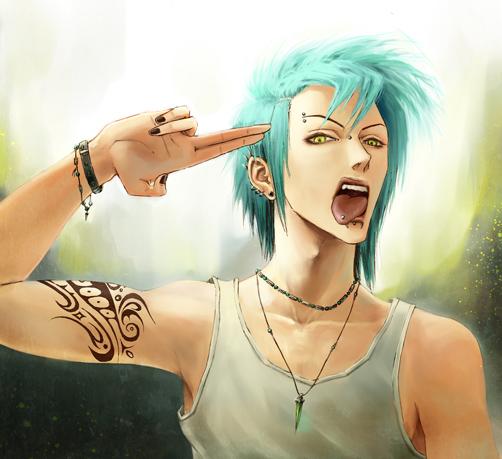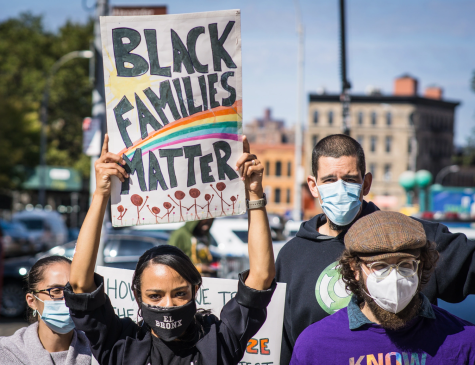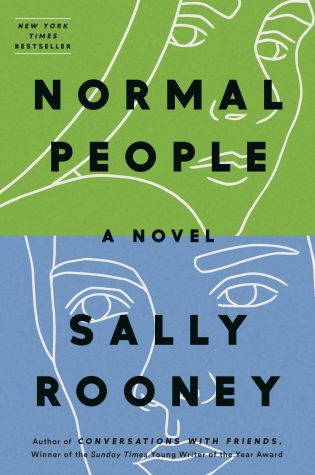Are tattoos and piercings still frowned upon?
April 21, 2016
I have a total of seven ear piercings and one nose stud. I am also on the verge of getting an elephant tattoo on my wrist, the size of a silver dollar, that I have been debating on for two years. But the question nagging at me is: In 2016, are tattoos and piercings really frowned upon in the workplace, or have we gotten past that?
I work for the San Jose Sharks as a member of the Young Professional Board that’s a part of the Sharks Foundation, the official non-profit of the hockey club. I have two managers that have tattoos on their feet, and a former manager of mine had a nose stud just like mine. I can recall going in for my first interview with the organization seven years ago, thinking that I wasn’t going to get hired because of my nose piercing, but was relieved to see that a future manager of mine had one.
Three years after working for the organization, one manager told me she never even knew I had my nose pierced and asked me if I just got it. I promptly replied, “Nope!” And she responded, “How funny, I never even noticed. It looks good on you. I like it!”
Not everyone has it as easy. It’s clear that tattoos are no longer the sole province of gang members, garage mechanics, students that want to rebel against mom and dad, or guys who are admirably confident that they will have the same girlfriend forever and ever.
According to a Pew Research poll from 2010, 23 percent of Americans have a tattoo, with 32 percent of Americans between the ages of 30 to 45 reporting having at least one.
Every year students graduate from schools with the hopes of landing a dream job and some of these students have tattoos. And though it may seem that the negative connotations about piercings and body ink have subsided among millennials, every time a friend of mine contemplates inking-up, it’s not that they hesitate about choosing the artist or image, they worry that having a tattoo might “brand” them in a way that they will regret. Body art is a way to express yourself. It’s a way to show your unique personality.
But for some businesses, it’s not what they like to see in their corporate workforce. In 2012, an annual survey by the Center for Professional Excellence at York College of Pennsylvania reported that 61 percent of human resource managers said yes, it would hurt a job applicant’s chances if they had a tattoo or piercing. That was up 57 percent from the same survey done in 2011.
Expressing yourself is guaranteed by the First Amendment. This right seems to include your ability to spread tattoos across your body or be adorned by numerous piercings. However, for most jobs, employees must follow the appropriate dress code of the company and appear professional and convey the desired look.
Facial piercings and tattoos may not be acceptable in situations where you are face to face with clients, or in a more conservative work force.
Seventy-six percent of respondents in a 2013 SFGate survey said tattoos and piercings would hurt their chances at being hired during a job interview. More than one-third — 39 percent of those surveyed — believe that those with body art reflect poorly on their employers. In conclusion, 42 percent feel that visible tattoos are inappropriate at work, and 55 percent reported feeling the same way about body piercings.
However, even though a law office may not welcome your freedom of expression, or a conservative office might be taking awhile to get over the “tattoo-taboo,” there might other professions that welcome it.
A San Jose Mercury News story from 2010 stated that generally more progressive lines of work such as marketing, technology, coffee shop baristas, graphic design shops, cosmetology and even some sales are more likely to be accepting of tattoos.
Maybe this “tattoo-taboo” is slowly becoming the new norm in today’s society afterall. I think I just may carry on and get that elephant tattoo I have been debating on.
I will be able to cover it with a watch and/or a bracelet. Then if someone ever decides to ask about it, or sees it, I can explain its significance.
















